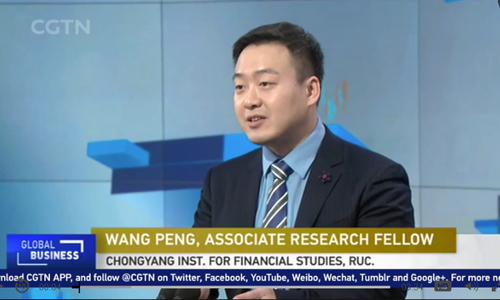Global Governance
Your Present Location: PROGRAMS> Global GovernanceEconomic cooperation the flagship outcome for China-ASEAN relations
Source: CGTN Published: 2018-11-13
During the past 15 years, China has enjoyed great relations with ASEAN countries in many fields, where economic cooperation is the flagship outcome, according to Wang Peng, an associate research fellow at the Chongyang Institute for Financial Studies at Renmin University of China.
Official data showed that China invested 88.4 billion US dollars in 2017 in the ASEAN region, up 23.5 percent from 2016. Most of the investments went through the Belt and Road Initiative. The four markets with the fastest growing interest from Chinese investors in 2017 were Brunei, Vietnam, Laos and Malaysia. Meanwhile, service is what the Chinese are looking at, as more than half of the investments have gone into the area.
Wang said high-tech could be a “new starting point” for both economies to upgrade cooperation. “First, as Chinese Premier Li Keqiang noted that high-tech is a new starting point, and in this way, China takes more investment to promote local companies to upgrade their cooperation under the Belt and Road Initiative.”
In the meantime, the expert stressed the importance of training. “According to our survey of various ASEAN countries, Chinese companies are eager and happy to hire local labor [when they operate in ASEAN countries]. However, they lack [the proper] skills and work experience, so the training is very important.”
“How to reduce the local poverty, how to create more jobs for local guys to make local people share the benefits from BRI, that's a new target for both of us,” Wang stated.
Chinese Premier Li Keqiang gave a speech in Singapore highlighting the importance of multilateralism and future cooperation. And China and Singapore have agreed to upgrade their free trade agreement. The new deals cover connectivity, finance, science and technology, environment, culture and customs procedures.
From Wang's point of view, Singapore is small in size but huge in innovation. He is looking forward to more bilateral cooperation based on tech. “How they can serve as a good example for South-South cooperation for the world, this is another target for us,” he added.
The article is based on an interview with Wang Peng, an associate research fellow at the Chongyang Institute for Financial Studies at Renmin University of China.
























































































 京公网安备 11010802037854号
京公网安备 11010802037854号





